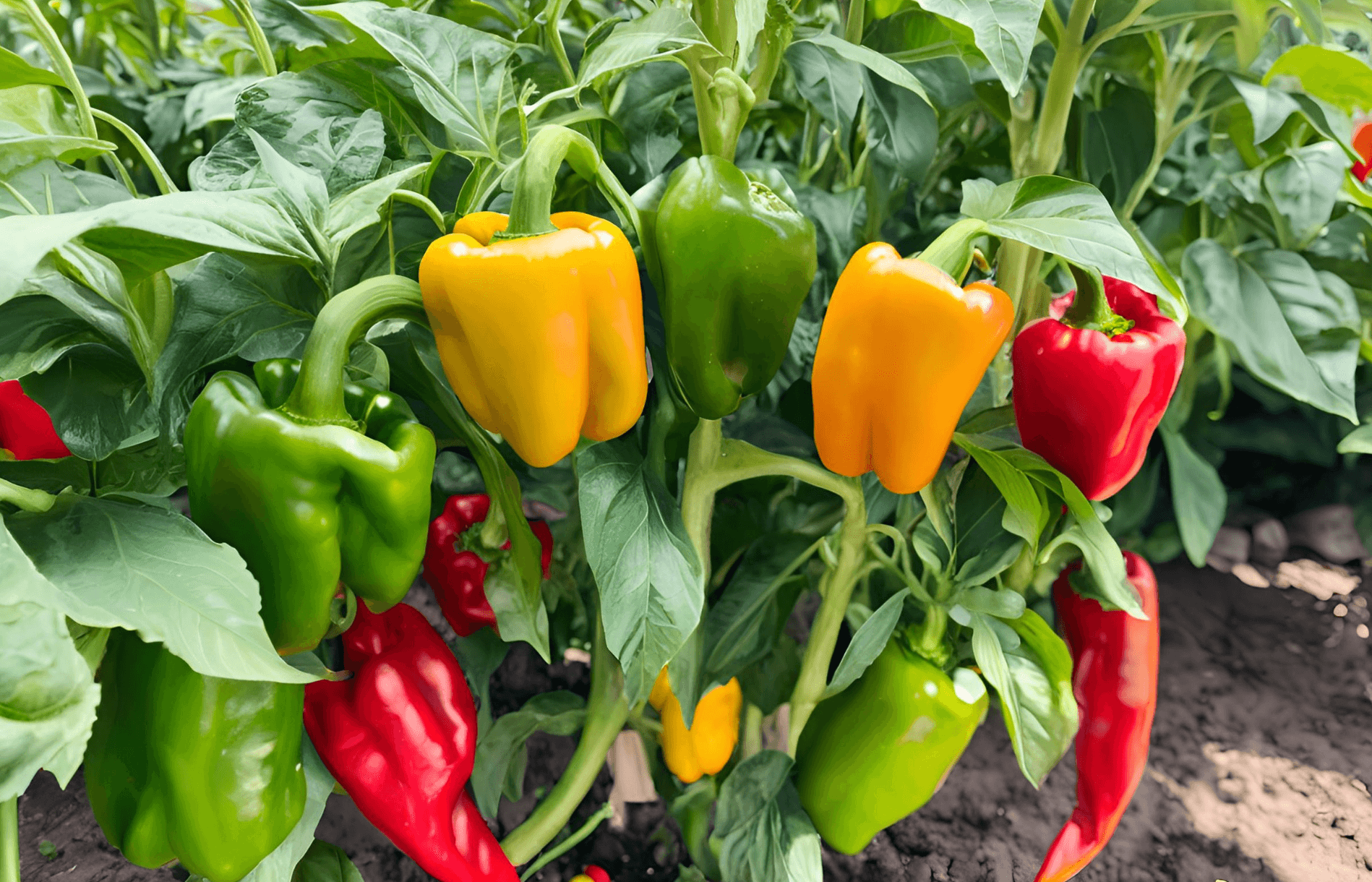
If you’re a gardener looking to grow sweet bell peppers, you might have heard the myth that planting hot peppers nearby can make your sweet peppers spicy. Don’t worry – this is not true! Let’s talk about why.
Cross-pollination is the transfer of pollen from one plant to another, leading to the production of seeds that carry traits from both parent plants. In peppers, cross-pollination can occur between different varieties within the Capsicum genus. However, it’s essential to note that cross-pollination affects the seeds, not the current fruit.
Debunking the Myth: Planting Hot Peppers Next to Sweet Bell Peppers
Many gardeners believe that planting hot peppers, such as jalapeños or chili peppers, next to sweet bell peppers will make the bell peppers spicy. This is not the case.
The current season’s fruit will maintain its expected flavor profile, regardless of the proximity of hot pepper plants. Cross-pollination only affects the seeds within the fruit, which may result in spicy offspring if you save and plant those seeds the following year.
So when a gardener experiences their bell pepper as spicy (and we hear this often!), it’s because their seeds were already affected when they were planted, so no matter how close their hot peppers were at the time, it’s not the reason for the spiciness.
Preventing Cross-Pollination in Sweet Bell Peppers
If you want to save seeds from your sweet bell peppers for future planting, it’s crucial to prevent cross-pollination. Here are some tips:
- Planting Distance: Plant your sweet bell peppers at least 50 feet away from hot pepper varieties to minimize the chances of cross-pollination.
- Physical Barriers: Use physical barriers, such as tall plants, to separate your sweet bell peppers from other pepper varieties, so the wind is less likely to carry the pollen.
- Hand-Pollination: If you have limited space, hand-pollinate your sweet bell peppers using a small brush to transfer pollen from one flower to another within the same plant.
- Saving Seeds: To ensure pure seeds, save them only from sweet bell pepper plants isolated from other pepper varieties.
Vegetables Affected by Cross-Pollination with Peppers
All Capsicum genus plants can cross-pollinate with your sweet bell peppers. This includes hot peppers like jalapeños, chili peppers, habaneros, and other sweet pepper varieties. However, vegetables outside the Capsicum genus, such as tomatoes, eggplants, and potatoes, will not cross-pollinate with your sweet bell peppers.
That said, I have heard plenty of people swear they got spicy tomatoes from their hot peppers. Although both plants belong to the Solanaceae or nightshade family, they are different species within different genera. Hot peppers belong to the genus Capsicum, while tomatoes are in the genus Solanum. Cross-pollination can only occur between plants of the same genus and species that are closely related enough to be compatible. Pepper and tomato flowers have different structures, making it difficult for insects to effectively transfer pollen between the two plants.
Growing Sweeter Bell Peppers: Tips and Tricks
In addition to avoiding cross-pollination, there are several ways to encourage your bell peppers to develop a sweeter flavor:
- Choose Sweet Varieties: Start by selecting bell pepper varieties known for their sweetness, such as ‘California Wonder’, ‘Yolo Wonder’, ‘Sweet Banana’, or ‘Mini Belle’.
- Provide Ample Sunlight: Bell peppers require at least 6-8 hours of direct sunlight daily. Adequate sun exposure helps the fruits develop their natural sugars, resulting in a sweeter flavor.
- Maintain Consistent Moisture: Keep the soil consistently moist but not waterlogged. Fluctuations in moisture levels can stress the plants, affecting the sweetness of the peppers.
- Feed Your Plants: Fertilize your bell pepper plants with a balanced, slow-release fertilizer to provide the necessary nutrients for optimal growth and sweetness.
- Harvest at the Right Time: Bell peppers can be harvested when they reach full size and have a glossy sheen. However, allowing them to ripen fully on the plant can result in a sweeter flavor. Depending on the variety, ripe bell peppers will change color from green to red, yellow, or orange.
- Avoid Over-Fertilizing with Nitrogen: Excessive nitrogen can lead to lush foliage growth at the expense of fruit development and sweetness. Stick to a balanced fertilizer and avoid over-fertilizing.
- Manage Pests and Diseases: Keep your bell pepper plants healthy by regularly monitoring for pests and diseases. A stressed or damaged plant may produce less sweet fruits.
As a gardener planting sweet bell peppers, you can rest assured that the proximity of hot pepper plants will not affect the flavor of your current season’s harvest. By understanding cross-pollination and implementing simple strategies to prevent it, you can enjoy a bountiful harvest of delicious, sweet bell peppers.
Want to learn more about growing bell peppers? Bell peppers are one of the most popular home gardening crops. And no wonder: with so many varieties to choose, you can grow a whole rainbow in your garden! With the Beautiful Bell Peppers Gardening Guide, you’ll have everything you need to know about growing and enjoying this delicious “fruit”.
Have you ever experienced hot bell peppers? Leave a comment below.


 Previous
Previous

